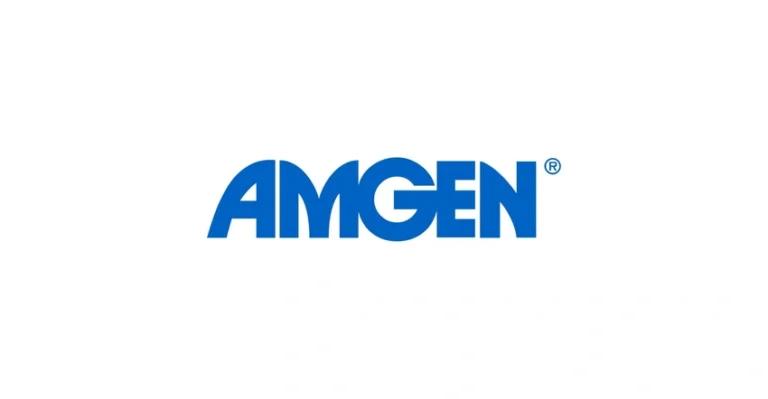Eli Lilly is betting big in the weight loss space and it comes as no surprise why is Eli Lilly is backing the weight loss drug bimagrumab. The innovative approach of bimagrumab, which combines fat reduction with muscle preservation, sets it apart in the highly competitive weight loss market, where existing treatments often lead to muscle loss. Eli Lilly’s strategic investment reflects a commitment to addressing this market gap and improving patient outcomes. This article delves into the reasons behind Eli Lilly’s focus on bimagrumab and what it means for the future of weight loss treatment.
Key Takeaways
- Eli Lilly is focusing on bimagrumab as a muscle-preserving weight loss solution, addressing a significant gap in the market created by traditional drugs that often lead to muscle loss.
- The BELIEVE Phase 2b trials showed that bimagrumab effectively promotes fat loss while preserving muscle mass, making it a superior option compared to standard weight loss treatments.
- The combination of bimagrumab with semaglutide has demonstrated enhanced weight loss results, highlighting the potential for innovative therapies to address both fat reduction and muscle preservation in patients.
Eli Lilly’s Strategic Focus on Bimagrumab

An illustration depicting Eli Lilly’s focus on the weight loss drug Bimagrumab.
Eli Lilly has shifted its focus to bimagrumab to position it as a leader in the metabolic field. This move highlights Lilly’s commitment to muscle preservation during weight loss treatments, addressing a significant market gap. Traditional GLP-1 weight loss drugs like Wegovy (semaglutide) or Mounjaro/Zepbound (tirzepatide) often result in muscle loss, which can adversely affect overall health outcomes. By contrast, bimagrumab aims to enhance body composition by reducing fat and simultaneously increasing muscle mass, offering a holistic approach to weight management.
Bimagrumab operates as a monoclonal antibody targeting the activin receptor type II A and B (ActRII). This mechanism is crucial for its dual action of promoting fat reduction while preserving and growing muscle mass. The primary goal of targeting ActRII is to improve body composition, addressing the common issue of muscle loss associated with many weight loss strategies. This innovative approach not only aids in weight loss but also enhances overall muscle health, making it a comprehensive solution for patients.
Lilly’s strategic focus on bimagrumab reflects a broader trend in the pharmaceutical industry, where companies are increasingly looking to develop drugs that offer multiple health benefits. By focusing on muscle preservation, Eli Lilly is not just addressing weight loss but also contributing to the overall well-being of patients. This forward-thinking approach sets Lilly apart from other pharmaceutical companies that primarily focus on fat reduction alone.
Furthermore, Eli Lilly’s commitment to bimagrumab is evident in its significant investments in research and development. Acquiring Versanis Bio has bolstered Lilly’s portfolio with bimagrumab, showing its dedication to innovative weight loss treatments. This strategic move underscores Eli Lilly’s vision of offering comprehensive weight management solutions, positioning itself as a leader in the pharmaceutical industry.
Impressive Phase 2b Trial Results

Graphical representation of impressive Phase 2b trial results for Bimagrumab.
The BELIEVE Phase 2b clinical trials were a pivotal study that showcased bimagrumab’s effectiveness in promoting fat loss while preserving muscle mass. This randomized, double-blind trial involved 507 participants and aimed to assess the efficacy of bimagrumab in comparison to other weight loss treatments. The trial results were nothing short of impressive, highlighting bimagrumab’s potential to revolutionize the weight loss market.
Participants using bimagrumab alone experienced:
- Significant fat loss without the detrimental muscle loss often associated with other weight loss medications.
- Weight loss entirely due to fat reduction.
- An average gain of 2.5% in lean mass.
This combination of fat reduction and muscle preservation sets bimagrumab apart from existing weight loss drugs, providing a more comprehensive solution for patients.
The trial also explored the combination of bimagrumab with semaglutide, a GLP-1 drug known for its effectiveness in weight loss. The results indicated that using bimagrumab alongside semaglutide could enhance weight loss outcomes while maintaining or even improving lean muscle mass. This combination therapy approach highlights the potential for bimagrumab to work synergistically with other treatments, offering patients more effective and holistic weight loss solutions.
These trial results have significant implications for long-term patient health. By promoting fat loss and preserving muscle mass, bimagrumab tackles the common issue of muscle loss in weight loss treatments. This unique benefit enhances weight loss efficacy and contributes to improved overall health outcomes.
As the pharma industry continues to evolve, bimagrumab’s dual-action mechanism positions it as a leading contender in the weight loss market, especially with Novo Nordisk’s Wegovy gaining attention in the biotech sector.
Combination Therapy: Bimagrumab and Semaglutide
The pairing of bimagrumab with semaglutide has shown remarkable promise in weight loss treatments. The BELIEVE Phase 2b trial highlighted superior results with this combination, demonstrating a 22.1% weight reduction, surpassing the outcomes of both treatments administered separately.
The trial revealed the following key findings:
- 92.8% of the total weight loss in the combination therapy was from fat mass, compared to 71.8% with semaglutide alone.
- This significant difference underscores the enhanced efficacy of combining bimagrumab with semaglutide.
- The combination therapy led to substantial fat loss.
- It preserved or increased lean muscle mass, providing a comprehensive solution for patients.
The success of bimagrumab in combination with semaglutide illustrates the potential for multi-faceted treatment approaches in weight loss. Leveraging the strengths of both drugs, this combination therapy offers a more effective and holistic solution, addressing both fat reduction and muscle preservation. As the weight loss treatment landscape continues to evolve, the combination of bimagrumab and semaglutide sets a new standard for efficacy and comprehensive health benefits.
Addressing Muscle Loss Concerns in Weight Loss Treatments

A visual representation of muscle preservation during weight loss treatments, relevant to Eli Lilly’s approach.
Muscle loss is a significant concern in traditional weight loss treatments, particularly with GLP-1 therapies. Recent studies have highlighted that these therapies often lead to a reduction in muscle mass, which can negatively impact overall health. This issue is particularly pronounced in older populations, making muscle preservation a critical factor in losing weight and weight lost treatments.
Bimagrumab addresses this concern with its unique mechanism that counteracts muscle loss while promoting fat reduction. By targeting the activin receptors, bimagrumab facilitates muscle preservation and growth, offering a dual benefit that is not commonly found in other weight loss drugs. This innovative approach not only aids in weight loss but also ensures that patients maintain their muscle health, contributing to better long-term health outcomes.
Research is underway to develop a novel protein sensor to monitor muscle loss during GLP-1 drug treatment, as recommended by the American Diabetes Association. This advancement could offer valuable insights into the effectiveness of weight loss treatments and help optimize therapy plans for better outcomes. The integration of such monitoring tools underscores the importance of muscle preservation in weight loss strategies.
Muscle preservation is critical for overall metabolic health, physical function, and long-term well-being. Bimagrumab’s ability to preserve and enhance muscle mass while promoting fat loss offers a comprehensive solution for obese patients seeking effective weight management, including lean mass preservation.
By addressing muscle loss, bimagrumab sets a new standard in weight loss treatments, providing real functional benefits beyond mere weight reduction.
Market Potential and Competitive Edge
The obesity drug market is growing rapidly, with projections indicating it will exceed $73 billion in the US by 2034. Rising obesity rates and advancements in drug development create substantial opportunities for innovative therapies like bimagrumab. Eli Lilly is well-positioned to capitalize on this market with its focus on muscle-preserving weight loss treatments.
Eli Lilly’s acquisition of Versanis Bio and integration of bimagrumab into its portfolio highlight its commitment to leading the market in innovative weight loss therapies. This strategic move enhances Lilly’s product offerings and positions the company to capture significant market share. Analysts project that Eli Lilly could capture 35% of the market for its obesity drug ZEPBOUND by 2034, underscoring its competitive edge.
In addition to its strategic acquisitions, Eli Lilly has demonstrated impressive revenue growth. In Q4 2024, revenue from ZEPBOUND reached $1.91 billion, reflecting a notable increase from the prior year. This revenue growth is a testament to the market potential of Eli Lilly’s weight loss treatments and the company’s ability to scale its operations effectively.
Eli Lilly’s stock (LLY) is expected to generate between $5 to $7 billion annually by 2030, driven by successful Phase 3 trials of bimagrumab and retatrutide. With a current P/E ratio of approximately 25, lower than competitor Novo Nordisk’s 28, LLY stock presents a compelling buying opportunity.
As the competition in the obesity drug sector intensifies, Eli Lilly’s innovative approach and market positioning provide a significant competitive edge, making it a significant risk and attractive investment advice class option.
Investment Insights: Why Investors Should Consider LLY Stock
The market potential for muscle-preserving obesity drugs is significant, with growing demand as more individuals seek effective weight management solutions. Eli Lilly’s focus on bimagrumab addresses this need, positioning the company effectively in a competitive market. The dual benefits of fat reduction and muscle preservation offered by bimagrumab provide a unique selling point that sets Lilly apart from competitors.
Eli Lilly’s phase 2b trial results for bimagrumab demonstrate impressive weight loss alongside muscle preservation, showcasing its efficacy compared to existing treatments. This approach addresses a critical concern for many patients, particularly older populations, making it a safer option for long-term weight management. The promising clinical data and strategic focus on innovative weight loss solutions highlight the investment potential of LLY stock.
Given the market potential, strategic focus, and compelling clinical data, LLY stock represents a strong investment opportunity in the evolving obesity treatment landscape. As Eli Lilly advances its research and development efforts, investors can expect significant returns, making LLY stock a valuable addition to any portfolio.
Summary
Eli Lilly placed a nearly $2 billion wager back in 2023 on bimagrumab, a drug designed to help people shed fat while building muscle simultaneously.
Originally created to treat rare muscle-wasting conditions, bimagrumab revealed surprising benefits in clinical trials. In a recent Phase 2 study presented in June 2025, combining it with semaglutide (the active ingredient in Wegovy) led to remarkable outcomes for participants with obesity:
- An average weight loss of 22% over 72 weeks (compared to 16% with semaglutide alone)
- About 93% of that loss coming from fat mass, with minimal impact on lean muscle
- A 58% drop in visceral fat (versus 36% with semaglutide alone)
- All achieved without requiring dietary or exercise modifications
This stands out because typical weight-loss drugs, like GLP-1 agonists, often result in losing both fat and muscle—a downside, since muscle boosts metabolism and supports overall health as we age.
Bimagrumab operates uniquely by inhibiting proteins such as myostatin and activin A, which typically restrict muscle growth. Lifting these restrictions enables muscle gains even during fat-burning phases, something that’s notoriously challenging to accomplish naturally outside of beginner training stages.
Lilly recognizes the potential here: a therapy like this could maintain strength and metabolic health during weight reduction, particularly for seniors or those prone to muscle atrophy.
We tend to fixate on scale numbers, but body composition—what portion is fat versus muscle—truly drives long-term wellness and lifespan.
The research is evolving, with this combo data marking a fresh milestone. That $2 billion investment underscores it’s no minor plot twist; it’s shaping up as the future of obesity treatment
Frequently Asked Questions
What is bimagrumab and why is it significant?
Bimagrumab is a significant monoclonal antibody developed by Eli Lilly that promotes muscle preservation and growth during weight loss treatments, effectively tackling the common issue of muscle loss associated with traditional weight loss therapies.
What were the results of the BELIEVE Phase 2b trial for bimagrumab?
The BELIEVE Phase 2b trial demonstrated that bimagrumab resulted in significant fat loss while preserving lean muscle mass, with participants experiencing an average gain of 2.5% in lean mass. This suggests its potential effectiveness in body composition improvement.
How does combination therapy with bimagrumab and semaglutide work?
Combination therapy with bimagrumab and semaglutide enhances weight loss by effectively targeting fat loss while preserving lean muscle mass, resulting in better outcomes than semaglutide used alone.
What is the market potential for bimagrumab?
Bimagrumab has strong market potential, particularly as the obesity drug market is projected to surpass $73 billion by 2034, positioning Eli Lilly favorably to capture a substantial share.
Why should investors consider LLY stock?
Investors should consider LLY stock due to Eli Lilly’s strategic focus on innovative weight loss treatments, strong clinical trial outcomes, and the significant market potential in the obesity treatment sector. These factors position the company favorably for future growth.
Medical Disclaimer
NowPatient has taken all reasonable steps to ensure that all material is factually accurate, complete, and current. However, the knowledge and experience of a qualified healthcare professional should always be sought after instead of using the information on this page. Before taking any drug, you should always speak to your doctor or another qualified healthcare provider.
The information provided here about medications is subject to change and is not meant to include all uses, precautions, warnings, directions, drug interactions, allergic reactions, or negative effects. The absence of warnings or other information for a particular medication does not imply that the medication or medication combination is appropriate for all patients or for all possible purposes.













